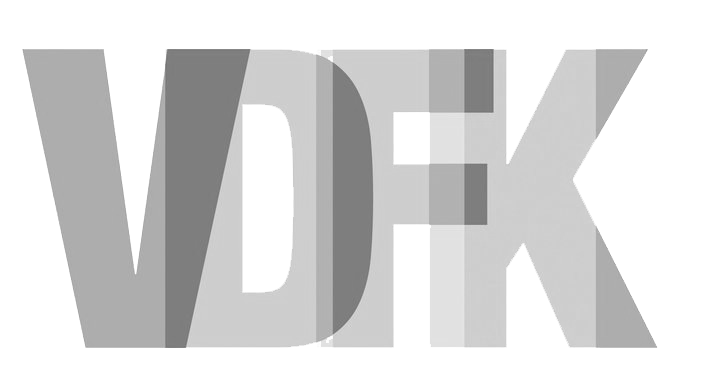Blog #1/22 Is That All There Is
By Yoana Pavlova
Opening Conference on Youtube
Art criticism, and by extension film criticism, came to be as a result of the industrial revolution in the XIX century. It was progress that upended the existing social and economic order, thus the middle and the working class were formed pretty much as we know them today. These classes craved new experiences, new thoughts, new meaning, and voilà – there came the moving image, again with the help of technological advancement.
Initially, art criticism was an invitation to share ideas about phenomena and noumena. Merely being present in this field felt exciting and liberating, and the written word, for back at the time criticism was in a textual form, appeared to be the most democratic way to open this field to the minds of others, as well as to partake in the Vorfreude of what is coming next. The XIX century was convinced that progress is a straight line on a Cartesian coordinate system, and this was only the beginning.
In this sense, it is symbolic that this year’s opening conference of Berlin Critics’ Week took place in the Akademie der Künste. Is standstill forbidden? The sort of “progress” cinema needs is a theme-dome that could potentially encompass a myriad of concepts and opinions, yet politely declined to be “the paradoxical site of tension” we were promised in the announcement. Just like last year, I tune in from the kitchen, because the events overlap with my son’s dinner time, only this year there is a slight difference – most debate participants and filmmakers are actually present in Berlin, visibly a bit pumped by this, nonetheless still carried on the pandemic wave of empty speech.
First eye roll of the night: Thomas Heise presenting his welcome note in German, with Dennis Vetter from the Critics’ Week team offering simultaneous interpretation in English. At a later point, Vetter will attempt to initiate a debate around national cinema, yet what we actually need to talk about is the notion of national critical thinking, how its philosophy and even syntax translate in a moment when we are more dependent of language than ever. Meanwhile, the acoustic of the place is so bad that I hear “jeder” instead of “Jäger,” and for a second the phrase sounds great in German, but “the artist as a hunter” metaphor is a rhetoric let-down, and a crash landing into XX century.
María do Mar Castro Varela’s keynote revolving around Freud’s theory on the uncanny shows some effort to elevate the dialogue, yet what would make her words different in 2022 as opposed to 2021? A verbal flow throwing in the mix superfluidity, Peggy Lee’s 1969 song Is That All There Is?, Gramsci – all that to hide the real uncanny, or the fact that the pandemic is still being treated as a non-event, and mind you, not only by the big business, but most notably by the cultural and educational sector all these people represent. Radically rethinking the status quo, as per 2020’s feverish declarations, would mean taking many conference participants out of the picture, and wouldn’t be that cruel lol.
To distract myself from the rising annoyance, I violently refresh Twitter and snap tons of pictures of my kid’s reflection in the tablet, as we both watch the Instagram live. As I adjust the screen of my cell phone vis-à-vis the tablet screen, my peripheral vision detects the constant influx of Instagram users joining the conversation, yet the number of viewers does not exceed 10. My brain meanders away from the monotonous recital, as I try to imagine what is going on in the heads of those deserters. Some seem to be regular cinephiles, others are official accounts from the trade, yet no doubt animated by ordinary people under the influence of extraordinary boredom.
My inner screaming intensifies with the discussion featuring Simone Baumann, Cíntia Gil, and Kevin B. Lee. The communicational standstill is pronounced, many lines come across as originating from expert seatkeepers well adjusted to their institutionalised privilege. Lee says something about extracting the past for the sake of the future and unleashing the demon of catastrophe – definitely worth analyzing further, but not according to his interlocutors. Instead, “We will ALWAYS have a choice” plus another white person cogitating on Soul and indigenous cinema are the equivalent of Marie-Antoinette being interviewed about the pastry industry. I cannot help but imagine dropping these amateur polemists with their spiel on Twitter and watching them being eaten alive there. Only most of them are not on Twitter, for they don’t need to struggle like the rest of us, 24/7 mapping ourselves on the discourse for a living.
“Are you going to take part in this?” – my son asks, as he chews his dinner.
“Pfff, no, luckily!” – I reply.
“But you’re also a film critic, right?”
“Don’t talk with your mouth full!”
“I have to say that Cannes is much more interesting to watch!”
My child was seven and a half when the pandemic started, now he is nine and a half. By the time he turns ten, he would have spent one quarter of his life in this “new normal.” He might not be able to give you the exact definition of mise-en-scène, however, he knows a thing or two about the Spectacle.
As soon as the panel is over, the batteries of both my tablet and my phone are down. Who would have thought that criticism is so exhausting. In the meantime, a big believer in physical Dasein, similarly to Cíntia Gil, my child demands his good-night kiss in person. When I get back to my recharging devices, the second part of the conference is already on, and I catch a glimpse of some subversively cryptic presentation slides. Suddenly, as an authoritative voice with German accent (belonging to Georg Seeßlen, probably) narrates the new alliance between film criticism and filmmaking, an Anonymous image pops up – so strikingly out of context that I feel compelled to take a photo right away.
While Nadav Lapid, Laila Pakalniņa, and Eva Sangiorgi take their seats on the stage, I put my notes away. Listening to festival darlings talk about film criticism is pure agony. It is nevertheless heartwarming to see the good old panel dynamics in action, and soon Netflix materialises as the common enemy in this Cold War subsidised by the attention economy. Eva Sangiorgi is always nice to watch and hear, at least she acknowledges her strategic advantage, but I don’t need Viennale’s Artistic Director to tell me about film language – give me the head of a provincial film festival relying on government and municipality funding who has to pull a Don Draper for every official meeting.
Two years of COVID-19 should have taught us that certain masks simply cannot be taken off. Still, some authenticity would be appreciated, for we have been in dire need of it without the courage to admit so. You don’t have to be Tom Cruise jumping on Oprah’s couch, just face and respect the fact that eye balls have become the most precious currency. The teased “casual refusal of productivity” would have been a nice occasion to bond on the lowest common denominator, in lieu we saw people stuck in their own Zoom rectangles, even if their bodies appeared to be in the same three-dimensional space.
I go through the murky photos I took this evening and delete them all. It is the only thing I can do.
Time to do the dishes.
Anonymously Yours

